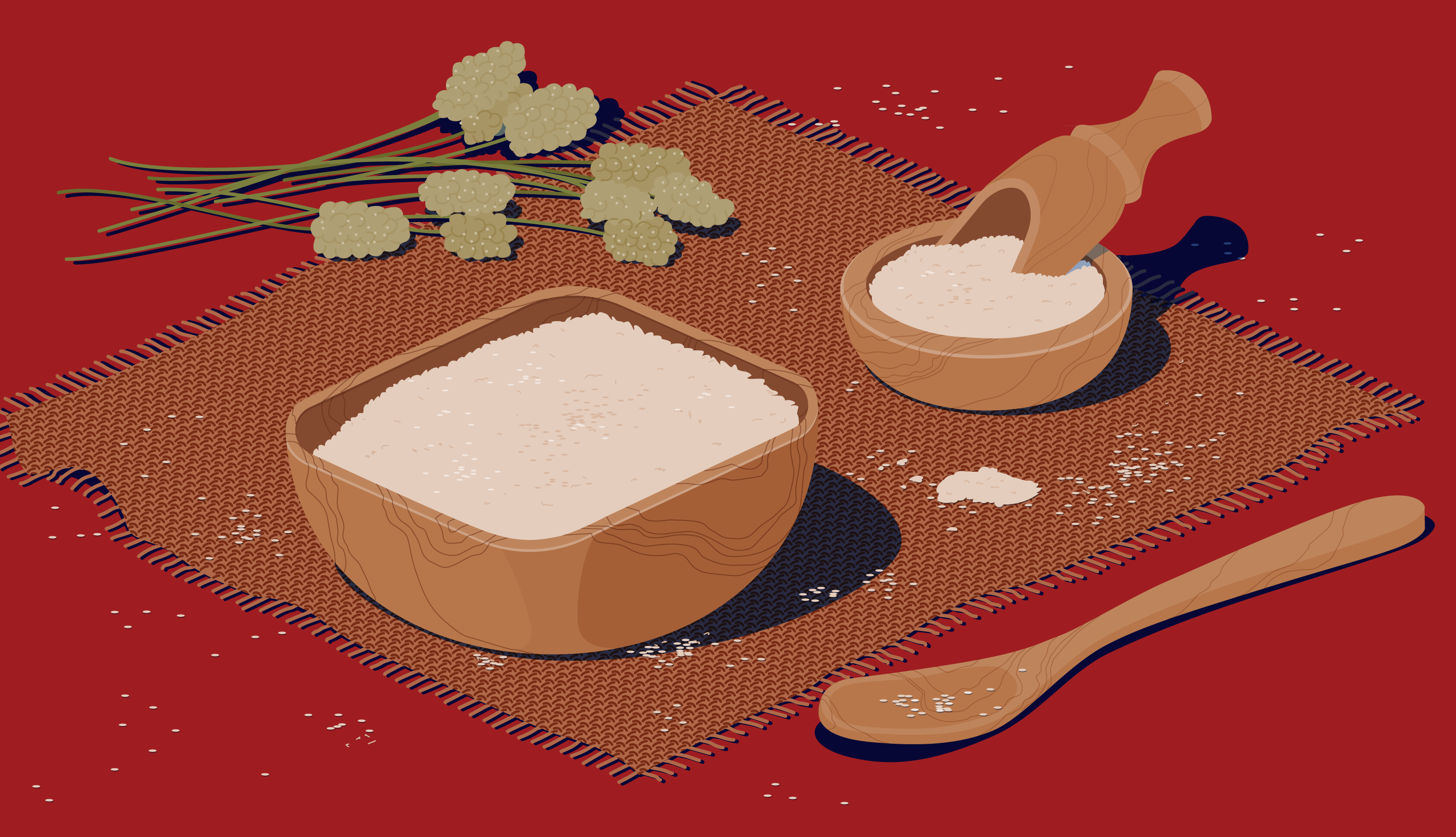Psyllium husk is a soluble fiber that supports digestive health. Also known as ispaghula, psyllium helps alleviate diarrhoea, constipation, irritable bowel syndrome, and more.
Adults need to eat around 30g of fiber per day, but most adults only get half that amount. Fiber isn’t just important for healthy bowel movements, it can also lower the risk of colon cancer, reduce cholesterol, and even help with weight loss.
Psyllium husk fiber possesses many of these benefits, and it is a common staple of fiber supplements, both as a powder and in capsule form. Discover all the psyllium husk benefits, side effects, and how to use it in this article.
☝️DISCLAIMER☝This article is for informational purposes only. It is not intended to constitute or be a substitute for professional medical advice, diagnosis, or treatment.
Table of contents
- What is psyllium husk?
- Psyllium husk benefits
- Psyllium husk side effects
- How to use psyllium husk
- Psyllium husk dosage
- Where to buy psyllium husk
- Summary
What is psyllium husk?
Psyllium is the name given to seeds of the Plantago ovata plant, a shrub-like herb predominantly found in India, although it does grow all over the world. Also known as ispaghula, psyllium has been used in traditional Indian and Asian medicine as a natural herbal remedy for a variety of health problems.
Psyllium husk benefits
Psyllium husks are mostly used as a laxative, but research shows that this plant has many other benefits, promoting the health of digestive and heart health.
Constipation and psyllium husk
Psyllium husk fiber is a soluble fiber that absorbs water, creating a gel-like texture that softens stools and relieves the symptoms of constipation. A number of studies have conclusively demonstrated the efficacy of psyllium husk in relieving constipation.
One randomised, double-blind study published in 1998 compared the laxative effects of psyllium powder (metamucil brand) to docusate, a sodium-based laxative. It found that psyllium was better at softening stools by increasing water content than the traditional medicinal laxative.
In addition to easing bowel movements in constipated patients, psyllium husk benefits the gut microbiome – an essential ecosystem of bacteria inside the colon. According to a small 2019 study, ground psyllium husk powder was particularly beneficial for the gut flora of constipated participants.
In this study, psyllium husk increased the abundance of three key types of bacteria (Lachnospira, Roseburia, and Faecalibacterium) that produce butyrate, a short-chain fatty acid that promotes gut health and combats inflammation. Researchers also found that psyllium powder was correlated with higher water content in stool, faster colonic transit time, and looser stools.
☝Is psyllium husk a prebiotic?☝Psyllium mainly supports gut microbiome health by encouraging healthy bowel movements. It is only mildly fermented by gut bacteria.
Psyllium husk for diarrhoea
Psyllium fiber is an effective treatment for mild-to-moderate diarrhoea. When psyllium comes into contact with water, it absorbs the water, which has several benefits for diarrhoea:
- improving the consistency of loose and watery stools
- slowing colonic transit
- reducing urgency to defecate
- lowering the frequency of bowel movements
Psyllium husk and irritable bowel syndrome (IBS)
Irritable bowel syndrome is a condition that affects people differently, causing constipation, diarrhoea, or both. Other symptoms include abdominal pain, bloating, and gas.

Some fermentable dietary fibers, like inulin and other FODMAPs, can worsen the symptoms of IBS because they cause digestive gases when metabolised by gut bacteria.
Psyllium is minimally fermented, which means that gut bacteria produce less gas from it, making it suitable for patients with irritable bowel syndrome. Psyllium is considered to be globally effective for IBS symptoms according to a 2017 study.

Cholesterol and blood pressure
Psyllium husk is a soluble fiber that supports heart health by reducing cholesterol and improving blood pressure in people with hypertension.
A 2010 study showed that overweight or obese volunteers who took 12g of psyllium supplement three times per day had siginificantly lower total and low-density lipoprotein (LDL) cholesterol at 6 and 12 weeks.
Taking a psyllium powder supplement while eating a healthy diet had the greatest effect on cholesterol.
Soluble dietary fiber also has a positive impact on blood pressure in people with hypertension (high blood pressure).
According to a 2020 meta-analysis of studies investigating the effect of psyllium husk on blood pressure, taking 10-15 g of psyllium per day significantly lowered blood pressure. The effect was strongest on people with the highest blood pressure.
Weight loss
Soluble fiber is able to increase satiety (the feeling of fullness) by slowing digestion, which may support healthy weight loss. According to a 2010 study, psyllium husk can promote sustained weight loss.
This study, involving patients with metabolic syndrome (a collection of symptoms including blood lipid and glucose imbalances), demonstrated that participants given psyllium husk powder lost 3.3 kg over a 6-month period.
☝Remember☝Weight loss is aided by eating a healthy, balanced diet and taking part in regular exercise.
Psyllium husk side effects
People who add psyllium husk supplements to their diet may experience some mild side effects at first, which usually disappear after a week or so when the digestive system has adapted to the increase in fiber. The main psyllium husk side effects are:
- abdominal cramps
- constipation
- flatulence
Always read the manufacturer’s label before taking over-the-counter laxatives or supplements. If you experience any severe symptoms, stop taking the product and contact your doctor.
How to use psyllium husk

Psyllium is available in a variety of forms and is sold under many brand names as a gentle laxative.
Psyllium husk powder is found in over-the-counter laxatives. It can also be bought online and added to baked goods, water, or smoothies to increase your daily fiber intake. Psyllium husks can absorb 20 times their weight in water, so make sure you are drinking plenty of water.
Psyllium husk capsules are an alternative way to increase fiber content. Capsules can be swallowed with a large glass of water and may be preferable for people who do not like the texture of ground psyllium husk powder.
☝Is psyllium husk gluten-free?☝Yes, it’s often used as a binding agent in many gluten-free recipes and is suitable for people with coeliac disease.
Psyllium husk dosage
The dosage of psyllium husk is usually displayed on the package. Only adjust this dosage under the guidance of a medical professional. Studies have shown 5 grams per day softened stools and produced a laxative effect for constipation.
Where to buy psyllium husk?
Psyllium husk is widely available. Some supermarkets stock small packets of psyllium (often located in the organic section of the shop). Online retailers, like Amazon, also stock psyllium husk powders and capsules.
High street retailers, such as Holland and Barrett, sell a wide selection of psyllium husk products including powders, granules, and capsules. You can also buy high-fiber ispaghula husk products in pharmacies.
Summary
- Psyllium husk is a form of soluble fiber, meaning it dissolves in water and forms a gel-like mass.
- It can be bought in capsule or powder form over-the-counter
- Psyllium husk fiber can soften stools, ease bowel movements, and improve regularity without increasing flatulence (gas)
- Potential side-effects include abdominal cramps, constipation and flatulence
- According to some studies, ground psyllium husk can increase the abundance of three key types of bacteria that produce butyrate
- Psyllium fiber is an effective treatment for mild-to-moderate diarrhoea and can also relieve constipation
- Psyllium is minimally fermented by gut bacteria, making it suitable for those with IBS

☝️DISCLAIMER☝This article is for informational purposes only. It is not intended to constitute or be a substitute for professional medical advice, diagnosis, or treatment.

















